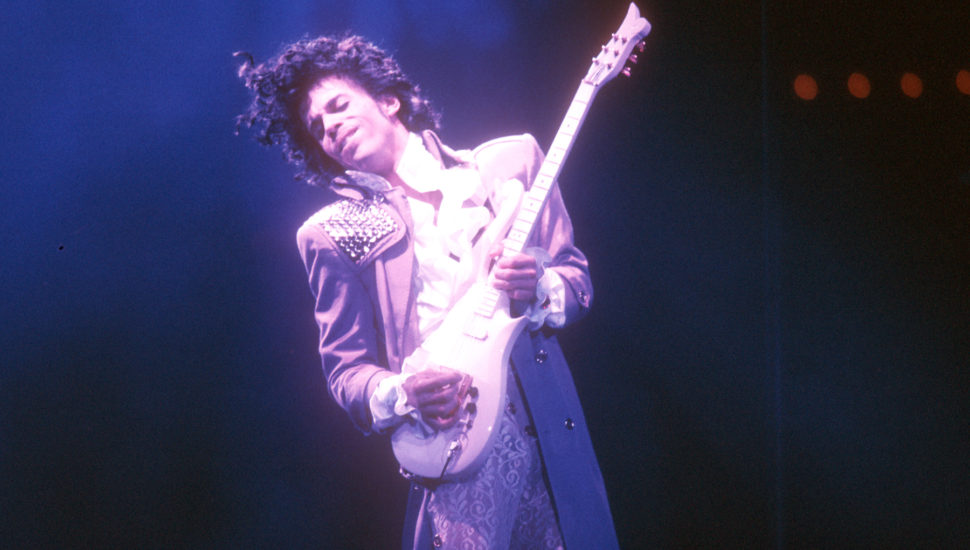What We Can All Learn from Prince: How to Ensure You’ve Carefully Planned Your Estate

Just a few days ago, no one would have predicted that the emotional story of a music icon’s untimely death would devolve into a cautionary tale better suited for the pages of a legal journal than for those of Rolling Stone. And yet as fans await word on the cause of Prince’s demise, it is his will – or rather his lack of one – that is making headlines. So far, the news is relatively benign. Could the wrangling over his estate turn ugly? Maybe. Is there a lesson here for everyone? Definitely.
Prince died with vast and varied wealth that includes real estate, an extensive music catalog, and unique memorabilia. Had he carefully considered it, he undoubtedly would have had a specific purpose for much of that wealth after his death – perhaps a legacy for his beloved community, a thank you for his artistic collaborators, or peace of mind for close family members. Prince could have done all of this, and more, in a will. Leaving a will would have allowed him to control exactly how, and to whom, his wealth would be distributed. Not leaving a will subjects his wealth to distribution in accordance with state law. There are siblings who stand to benefit, some of whom had no contact with him. A tabloid report hints at a child. Chances are good that more heirs may surface before Prince’s estate is settled. Chances are better that those heirs will end up fighting in court. But the lessons of Prince’s estate are applicable to everyone, regardless of estate size or value.
Your Wishes vs. State Law
If you die without a will in Pennsylvania, the distribution of your estate is determined by state law, commonly called the intestacy statutes. If you’re married and have children, these statutes dictate that slightly more than one-half of your estate will pass to your surviving spouse, and the rest to your children. If you’re married and have no children, but have a parent who survives you, your surviving spouse will share your estate with your parent. Unmarried and childless? A surviving parent will inherit everything; if no parent survives you, your heirs will be your brothers and sisters, nieces and nephews.
Take a moment to think about how and to whom you would like to leave your estate. If you’re married, most likely you would leave everything to your surviving spouse, and would benefit your children only if your spouse died before you. But if you die without a will, something different happens. Pennsylvania law controls how your estate would pass. Your spouse would receive slightly more than one-half of your estate and the rest would pass to your children. The intestacy statutes become the law of unintended consequences.
The Details That Really Matter
Let’s assume that the statute-directed division between your spouse and your children is what you want. Do you still need a will? Consider that children under age 18 cannot inherit in their own names; if you have minor children who would benefit under the intestacy statutes, the court would have to appoint a guardian to manage the property. Your minor children would receive the property outright when they turned 18 – too young? Too bad.
If you’re single and have no children, you may be fine with your estate passing to your surviving parent or parents. But what if your surviving parent is in an extended-care facility, your family has done extensive financial planning for your parent and, after spending her available assets, she qualifies to have Medicaid pay the nursing home bill. The inheritance your surviving parent receives could disqualify her from receiving such benefits. If you have no surviving parent, your estate will pass to your siblings. But what if you would like to leave your estate to your brother who has fallen on hard times and not to your sister who has won the lottery? Under the intestacy statutes, your brother and sister would inherit equally.
How and to whom your estate passes is not the only area over which you have no control if you die without a will. Every estate must have someone who is responsible for ensuring that the estate is handled properly and in accordance with Pennsylvania law. If you have a will, you can choose your executor. If you do not have a will, the right to serve as administrator falls to your heirs. Several people could have an equal right to serve, setting the stage for acrimony. Along the same lines, having a will provides you the opportunity to name guardians for minor children, and to tailor how your estate should be used for the benefit of any minors who may stand to inherit.
Where There’s a Will …
There are myriad benefits to having a well-written will versus dying without one – almost as many as the “what ifs” that surface when looking at what the intestacy statutes provide. For a married couple with young children, a will could mean naming guardians for minor children and postponing outright ownership of assets by their children past 18, the statutory age of majority. For an unmarried person, a will could mean maintaining a financial plan for an elderly parent. For everyone, a will means the opportunity to state the “who,” “what” and “how” when it comes to one’s estate – it’s the difference between having control and not, between setting forth one’s wishes and leaving things to chance. And you don’t have to be Prince, or have Prince-like wealth, to reap the benefits.
________________
The estate planning attorneys of Gawthrop Greenwood’s Trusts & Estates Department are part of a tradition of excellence that spans the firm’s history. We assist clients with their most important decisions, providing estate planning for the most complex to the simplest of personal and family dynamics. Learn more.
Connect With Your Community
Subscribe to stay informed!
"*" indicates required fields
















![95000-1023_ACJ_BannerAd[1]](https://vista.today/wp-content/uploads/2023/03/95000-1023_ACJ_BannerAd1.jpg)
































